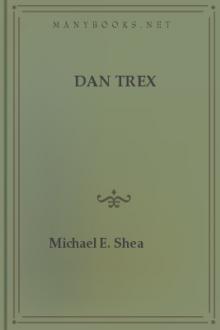How to Be a Mentsh (and Not a Shmuck) Wex, Michael (the false prince series txt) 📖

Book online «How to Be a Mentsh (and Not a Shmuck) Wex, Michael (the false prince series txt) 📖». Author Wex, Michael
A shmekele is small and cute and can sometimes be very funny. Its owner might wave it around once in a while, and the absolute worst it can do is to give the owner himself and anyone in the line of fire a good soaking. With respect to Jewish life, it’s the only visible sign that a child too young to wear a yarmulke or ritual fringes is in fact a Jew. “Small is beautiful” comes to an end at roughly the same time as the shmekele, grown considerably larger, becomes capable of more than what Chaucer called “purgacioun of uryne.” By the time we get to shmok, the shm is simply the first part of the word, as it is in such other well-known Yiddish terms as shmatte or shmooz, in which the shm has no connection with the pejorative prefix. Shmok becomes a word like any other, only dirtier. Technically speaking, shmok masquerades as the full-sized, positive form from which the diminutives shmekl and shmekele are derived: compare a boy four or five years old who goes up to the lady next door and announces proudly, “I have a penis,” to a man of thirty who does the same thing. That’s the difference between a shmekl and a shmok.
II
AS BOTH THE ant and the penis teach us, enlarging a diminutive, blowing it up as if life and speech were photo labs, can turn something that used to be cute into something unpleasant and often frightening. Growth alone, though, doesn’t account for the aura of really distasteful obscenity that still clings to shmuck in Yiddish. Where such English terms as prick and dick can hardly be called sophisticated, using them in polite company to refer to either a penis or a person will cause real offense only if the person, his penis, or some of his friends and family are present. The speaker’s breeding, education, and social skills might be called into question; his choice of words might be labeled inappropriate, but not as overtly offensive as asshole or worse, cunt, would have been in the same conversation. Shmuck’s power to offend derives from its deeper cultural context, from a couple of unusual features of Jewish religious and cultural life.
The most significant of these is the central importance of circumcision in Jewish life. As the only ritual that the religion itself considers indispensable—the word orel, “man with a foreskin,” is a synonym for gentile in both Hebrew and Yiddish—circumcision was until recently considered the infallible sign of the Jew throughout Europe and the Americas. This identification of circumcision with Judaism, the idea that a man’s penis can determine the nature of his relationship with God, invests the child’s shmekl with a significance and allure that might not be immediately apparent to adherents of other faiths. It’s not unusual for a Yiddish-speaking mother to lift up the baby boy whom she’s diapering and, while cataloging the rest of his body parts and their beauty, wax just as dithyrambic over what she will inevitably call his kosher shmekele, his kosher little shmekl, the one body part that, even for the baby’s mother, has more to do with Mount Sinai than with cocktail weenies, no matter how strictly kosher the latter.
An equally powerful tradition, the role of which is slightly less easy to discern at first glance, is the Jewish refusal—strictly speaking, the Jewish inability—to utter the Tetragrammaton, the four-letter name of God that is said to be His only real name. It’s what God calls Himself when He’s at home. So powerful is the prohibition against saying it—when the Temple was still standing, no one but the High Priest was allowed to utter it, and even he could do so only on Yom Kippur—that the secret of its pronunciation was lost after the Temple was destroyed: you couldn’t say it if you wanted to. Another, less sacred name is used in its place, one that everybody knows is a less powerful substitute. God’s real name can be seen in any Torah, but it is never heard; anything you can call Him involves some kind of diminution. The prohibition against using God’s name has expanded to the point where the stand-ins have acquired a taboo quality of their own, as have even some of the substitutes for the substitutes. You’ll say adonai when praying, but adoshem or Ha-Shem (literally, The Name) when merely making reference to God. You’ll say elohim in prayer, but otherwise it’s elokim: what would look like blasphemy anywhere else—imagine calling Jesus, Mesus—is a sign of respect among Jews.
Although Yiddish has more than its share of euphemism and antiphrasis—calling a fat person Tiny or an evil eye a good eye—the only things or beings whose names are programmatically excluded from a child’s universe are God and the kid’s own penis. No living being, young or old, knows what God is really called, and no little boy knows the real name of his shtekl or shmekl. All he knows about it is that his penis is no shtekele, no candy cane, and that it is the only part of his body that doesn’t seem to have a name of its own. Shmekl thus expresses an attitude to shtekl, a name that the child quickly learns has nothing to do with the part of him to which it’s supposed to refer. An arm is an arm; a leg, a leg; even his tukhes, or rear end, has a name that it doesn’t have to share. Only his penis is referred to obliquely, metaphorically, by a name that really belongs to something else. Any pre-Hebrew school pisher already knows that his member is a “shtekele,” not a shtekele, and he therefore





Comments (0)